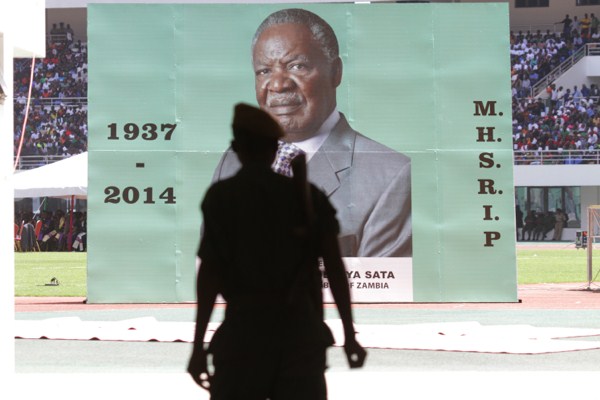The death in October of Zambian President Michael Sata has brought internal rivalries to a boiling point not only in his ruling Patriotic Front (PF), but also in the main opposition parties. The infighting, which has already seen some political heavyweights switching parties in order to satisfy their ambitions, complicates efforts to predict the outcome of Zambia’s presidential election on Jan. 20. Amid all the mud-slinging and legal challenges, there has so far been little time for policy discussion in Africa’s second-largest copper producer. Instead, voters are witnessing an unedifying spectacle of name-calling, scheming and internecine squabbling.
Sata’s long battle with ill health and his unwillingness to name a preferred successor meant that his would-be replacements had both the motive and the opportunity to plot and plan. Even before his death was announced on Oct. 28, the contest was already being fought. The opening salvo was fired by Sata himself, who unexpectedly dismissed his chief “fixer,” Justice Minister Wynter Kabimba, in August, thereby sidelining one of the main contenders.
Sata’s vice president and the country’s current acting president, Guy Scott, is ineligible to stand for the top job because his parents were born overseas.* Instead Scott has assumed the role of PF kingmaker, but his efforts have met strong internal resistance, hastening a party split that resulted in two factions each choosing their own presidential candidate. Scott sparked controversy by firing Edgar Lungu, the PF’s secretary-general and Zambia’s defense minister, seen as a leading contender to succeed Sata. The decision caused so much uproar within the party that Scott was forced to reverse it. For this act of perceived interference, he was then suspended from his position as party president.

